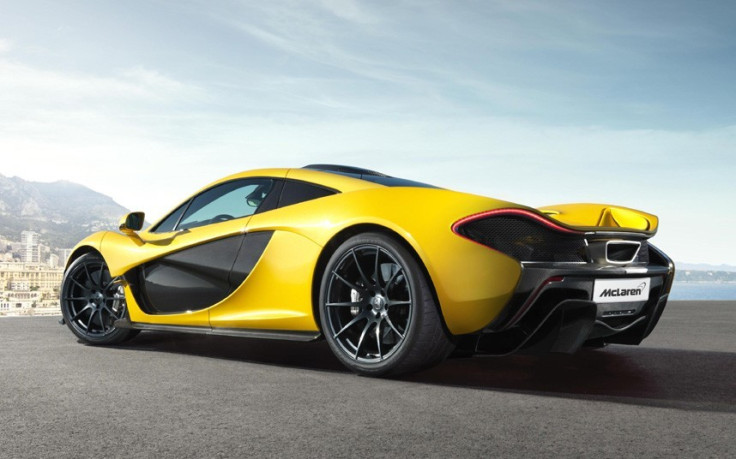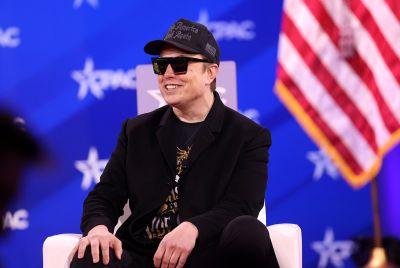Analysis: Electric Cars and The Confessions of a Petrolhead
I've always viewed electric cars with suspicion, as if they're built and driven by people who want to rid the world of internal combustion engines in pursuit of preventing us petrolheads from enjoying ourselves. Blame that on a childhood dominated by Scalextric and deafening race weekends at Silverstone and Brands Hatch, because it looks like I'm wrong.

A whining, near-silent future of zero-emission city cars driven by smug environmentalists isn't the only option car manufacturers are assessing, and this stereotype needn't dampen the driving enthusiasts' pursuit for something more exciting. Indeed, the green motoring world has come a long way since the Toyota Prius and G-Whiz.
Ferrari, McLaren, Mercedes, Porsche, Tesla, BMW and Lotus are all developing electric and hybrid technologies for current and future road cars - and as for motorsport, Audi won the Le Mans 24 Hours with a hybrid electric car this year, and Formula One governing body the FIA will launch the all-electric Formula E World Championship in 2014.
Motorsport has always played a key role in the development of road car technologies - for speed, reliability and safety - so it's no surprise that some of the most interesting electric and hybrid cars to capture the attention of driving enthusiasts come from the race track.
The Formula One connection
Both Ferrari and McLaren announced their next generation of million-pound flagship cars this year, and for the first time in either company's history both feature hybrid engines capable of returning improved economy and lower emissions - and both systems find their origins in Formula One.
Used by F1 cars to boost acceleration for a few seconds each lap, Kers (kinetic energy recovery system) gathers energy spent during braking and stores it, ready to be deployed at the touch of a button.
In the case of the McLaren P1 (pictured above), the car can drive entirely on stored electric power for 12 miles - not a lot, but it means you avoid the London Congestion Charge and any future city centre clampdowns on pollution.
The idiotically-named LaFerrari can't operate in full-electric mode, but uses a similar system to the P1 whereby it gives the car extra power and torque low down in the rev range, where conventional, naturally-aspirated petrol engines are unable to offer maximum power.
From Ferrari to Ford
This low-down grunt is a characteristic shared by all electric or hybrid vehicles. Because maximum power and torque is available from zero revs, initial acceleration is quicker - something you can even feel in the Ford Focus Electric, a car hampered by 300kg of batteries, yet still feels more responsive off the line than its petrol relative.
What electric power takes away with one hand - noise, a manual gearbox, even multiple gears - it replaces with a more responsive power delivery, and even the heavy batteries can be used to the manufacturer's advantage.
Although the Focus's handling doesn't benefit from that extra 300kg stored in the boot and below the rear seats, Tesla has used this extra weight to great effect in the Model S.
The battery pack is installed in the floor, as low as possible. As a result, the car's centre of gravity is lower than just about anything else on the road, somewhere around the top of the wheels, just 18in off the ground. While BMW offers carbon fibre roofs to bring the centre of gravity down, Tesla is already miles ahead.
This is hugely beneficial to the car's handling, meaning the car stays flat and level through fast corners without needing stiffer and less comfortable suspension, as used on the Focus.
Range anxiety
Plainly, manufacturers know how to make the most from electric power, and as the Tesla Model S proves, a range of 300 miles from an all-electric car is possible, all but dismissing the 'range anxiety' suffered by wary consumers.
Yes, electric cars are still much more expensive than the petrol alternatives, the choice of vehicles on sale is small, charging points aren't as common as petrol stations, and range for all but the Tesla is a concern.
But I'm warming to the idea - more than I ever thought I would - because these obvious drawbacks are reducing all the time. As major manufacturers, both on racetrack and road, continue to invest, energy providers and governments will have little choice but to embrace the change and provide the infrastructure electric cars so badly need.
Gamble
Tesla is nobly installing a charging network across the US right now - with stations coming to the UK and Europe soon - but being proprietary and not compatible with any other electric car, this solution seems shortsighted.
What the industry needs is the government to take a gamble and install super-fast chargers at existing petrol stations. Forget about recharging cars for free or a couple of pounds. You could charge £20 to fill a 300-mile range Tesla with electricity and it won't take long for petrol drivers paying more than £50 to cover the same distance to take note.
Only then - and once prices of electric cars have fallen, as they invariably will once economies of scale are realised - will the jump from combustion to electric current make sense.
Resting on our laurels
Just because we've had the petrol engine for more than a century doesn't mean we should rest on our laurels and assume it's perfect - and equally we enthusiasts clinging to it with oily hands shouldn't assume that whatever comes next will be a step backwards.
Drivers no doubt baulked when the brake pedal was moved from the right to the left, and they probably spluttered again when the gear stick was no longer fitted to the outside of the car, but that doesn't mean we have to treat electric power with the same skepticism.
The good news for driving enthusiasts is that once you look past the planet-saving, Prius-driving stereotype painted by Jeremy Clarkson and other dinosaurs of motoring past, you see a whole host of major manufacturers eager to develop and sell electric cars of all shapes, sizes, prices and performance.
I won't be buying an electric car tomorrow, but it's impossible to not be excited by the endless possibilities available once rage anxiety has been removed from the equation.
© Copyright IBTimes 2025. All rights reserved.






















